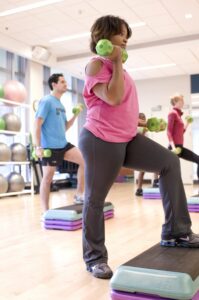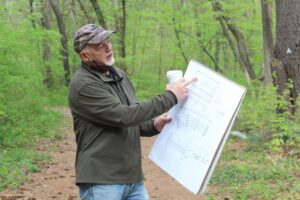By Colin McCandless, Contributing Writer

Photo/Amanda Mills, USCDCP
BOSTON – As we get older most everyone wants to tap into the fountain of youth and learn how to stay healthy as we age and minimize the effects of Father Time. Some habits conducive to healthier aging are self-explanatory: don’t smoke or quit smoking if you still do, drink alcohol in moderation and protect yourself from harmful UV rays by wearing sunscreen to lower the risk of skin cancer and premature skin aging.
The good news
Others might require more attention, but the good news is that you don’t have to do anything drastically different than when you were younger. However, you do need to make certain behavioral modifications.
Ellen Birchander, MSW, the graduate program director of University of Massachusetts Boston’s Department of Gerontology, McCormack Graduate School, explained that aging is not considered a discipline but rather is known as the “field of aging.” The field of aging encompasses every facet of life including finance, nutrition, exercise, social engagement and mental health.
Birchander, an expert in the areas of health and physical aspects of aging, social aspects of aging and the psychology of aging, said that when it comes to aging the “decline is gradual,” but as people reach the 60 to 65 age range, “the slope becomes more pronounced.”
Preventative maintenance

Photo/Submitted
While diet and exercise are part of staying healthy as you age, they were no less important to your overall health and wellness when you were younger, Birchander noted. “The difference is that as you get older you need to pay more attention to them and take into account changes occurring in your body. You don’t need the same number of calories, but you need the same amount of nutrients,” she remarked.
This entails making lifestyle changes and dietary adjustments to ensure you’re eating well-balanced meals and getting the most nutrition possible out of the meals you prepare. Limiting those burgers and fries to special occasions becomes paramount. WebMD recommends eating a diet rich in fruits, leafy greens, nuts and seeds, whole grains and fatty fish including salmon, sardines and tuna, and avoiding processed and sugary foods to help reduce inflammation, which increases with age.
You may also need more exercise to maintain muscle mass. “Physical health and being active daily is key,” said Birchander, though the amount or time one needs to dedicate to exercise varies by the individual.
“Nobody dies from old age,” stated Birchander. “You die from diseases.” Staying healthier as you age requires more of what Birchander described as “preventative maintenance.”
Other factors to heed as you age
Diet and exercise aren’t the only factors that affect healthy aging. “While physical health is important, it’s equally important to be socially and mentally engaged,” commented Birchander. “Until you die, you have contributions to make.”

Photo/Laura Hayes
These contributions might involve work, family or volunteering, and they can all benefit your health, she said. There are also high correlations between isolation and mental health issues such as anxiety and depression, Birchander added. “It’s just as important to take care of your mental health as it is your physical health.”
Another major aspect to pay attention to is genetics. If you have a history of a particular disease or diseases in your family, Birchander advised that it would be prudent to monitor for those conditions and take preventative measures.
She also emphasized the significance of what’s called “productive aging,” which the CDC defines as an “approach that emphasizes the positive aspects of growing older and how individuals can make important contributions to their own lives, their communities and organizations, and society as a whole.”
This can include staying engaged in activities like your job, along with community-based endeavors such as public service and civic engagement, among others. Birchander cited the increasing number of people embarking on second careers as one example of productive aging. As individuals progress into middle age and beyond, they might decide they want to switch careers and pursue a new passion that “provides them satisfaction through meaningful work and contributions to society,” she said.
Ultimately, when it comes to healthy aging and slowing the aging process, like most things in life, “there’s no magic bullet,” maintained Birchander, “because everyone’s different.” But paying attention to your mental and physical health can help you maintain a better quality of life.
“As you age, your priorities really don’t shift,” she said. “It’s finding meaning in what you do. You have to do something that brings meaning to your life.”
For more information:
https://www.cdc.gov/niosh/topics/productiveaging/productiveaging.html
https://www.thorne.com/take-5-daily/article/seven-habits-that-slow-the-aging-process
https://www.webmd.com/healthy-aging/how-to-reduce-inflammation-as-you-age
RELATED CONTENT:
‘DIY’ healthcare is changing the industry and people’s lives (fiftyplusadvocate.com)
Improve your brain health with meditation (fiftyplusadvocate.com)
Holden producer/host documents ‘getting older’ on public television (fiftyplusadvocate.com)












